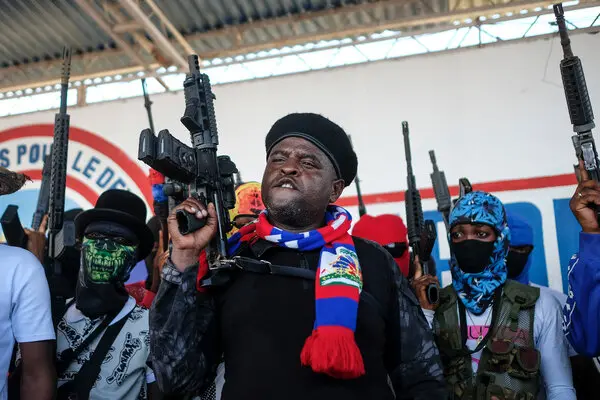Haiti is facing an unprecedented wave of gang violence, with a significant increase in deaths, injuries, and displacement that has stretched both local and international resources to their limits. The latest reports reveal an alarming escalation: between July and September 2024 alone, over 1,740 people were either killed or injured due to gang-related activities. Tragically, this figure marks a 30% rise from the previous quarter, with children increasingly becoming victims in a conflict spiraling out of control. Of these recent casualties, 1,223 deaths are attributed directly to gangs, and 106 have been classified as extrajudicial killings by law enforcement.
Government and International Response
In response to the escalating violence, Haitian Prime Minister Garry Conille has intensified calls for support from the international community, particularly to strengthen the Multinational Security Support (MSS) mission spearheaded by Kenya. Authorized by the United Nations Security Council in October 2023, this mission was created to assist the Haitian National Police in regaining control from violent gangs. However, funding and personnel shortages have hindered the MSS mission’s effectiveness, making it challenging to provide the level of security Haiti desperately needs.
The United States has pledged its commitment to helping Haiti stabilize. Earlier in 2024, the U.S. Department of State voiced its support for the MSS mission and called on other nations to provide additional resources. Similarly, the United Nations has stepped up efforts to curtail the flow of weapons into Haiti by expanding the arms embargo to cover all types of firearms and ammunition. This latest measure empowers U.N. member countries to take action against the illegal arms trade that has been fueling gang activity and violence within Haiti. In addition, existing travel bans and asset freezes have been expanded to target individuals associated with these illicit activities, adding another layer to the global response aimed at addressing Haiti’s instability.
An Ongoing Humanitarian Crisis
Despite these initiatives, gangs in Haiti have found ways to counter law enforcement efforts. They have increasingly relied on tactics such as digging trenches and using drones to monitor police activities, making it difficult for security forces to maintain control in affected areas. The relentless violence has displaced over 700,000 people, with the number nearly doubling in just six months, placing enormous pressure on humanitarian resources within the country.
This displacement is not the only crisis facing Haiti. The country’s food security has reached alarming levels due to the gangs’ control over farmlands and transport routes. By blocking essential routes, gangs have disrupted the movement of goods, limiting food supply and worsening the hardships experienced by displaced families. Additionally, the seizure of agricultural lands has disrupted local food production, creating a cycle of poverty and hunger that deepens the crisis and undermines efforts to stabilize the country.
International Support and Further Challenges
The international response has included commitments from countries like El Salvador, which plans to send troops to bolster the MSS mission, alongside continued calls for broader international intervention. Yet, the complex dynamics at play underscore the need for a multifaceted approach that addresses not only immediate security concerns but also the systemic issues underlying the crisis. The rising violence and the inability to secure critical infrastructure illustrate how deeply ingrained the challenges are, as gangs continue to operate with relative freedom across various regions of Haiti.
Haiti’s leaders, citizens, and the international community face a sobering reality: the path to peace and stability will require sustained commitment, careful coordination, and a clear focus on both humanitarian support and security. As gang-related deaths climb and communities grapple with increasing violence and displacement, the urgency for a concerted, long-term solution is clearer than ever.
Where Do We Go from Here?
As Haiti contends with this daunting crisis, the nation’s leaders and international partners are called to work together with even greater resolve. While the MSS mission represents a step forward, the practical challenges of implementation make it evident that far more resources are needed. For Haitians, daily life remains overshadowed by violence and uncertainty, and the international community’s response over the coming months may well determine whether hope and security can be restored in this beleaguered nation.
